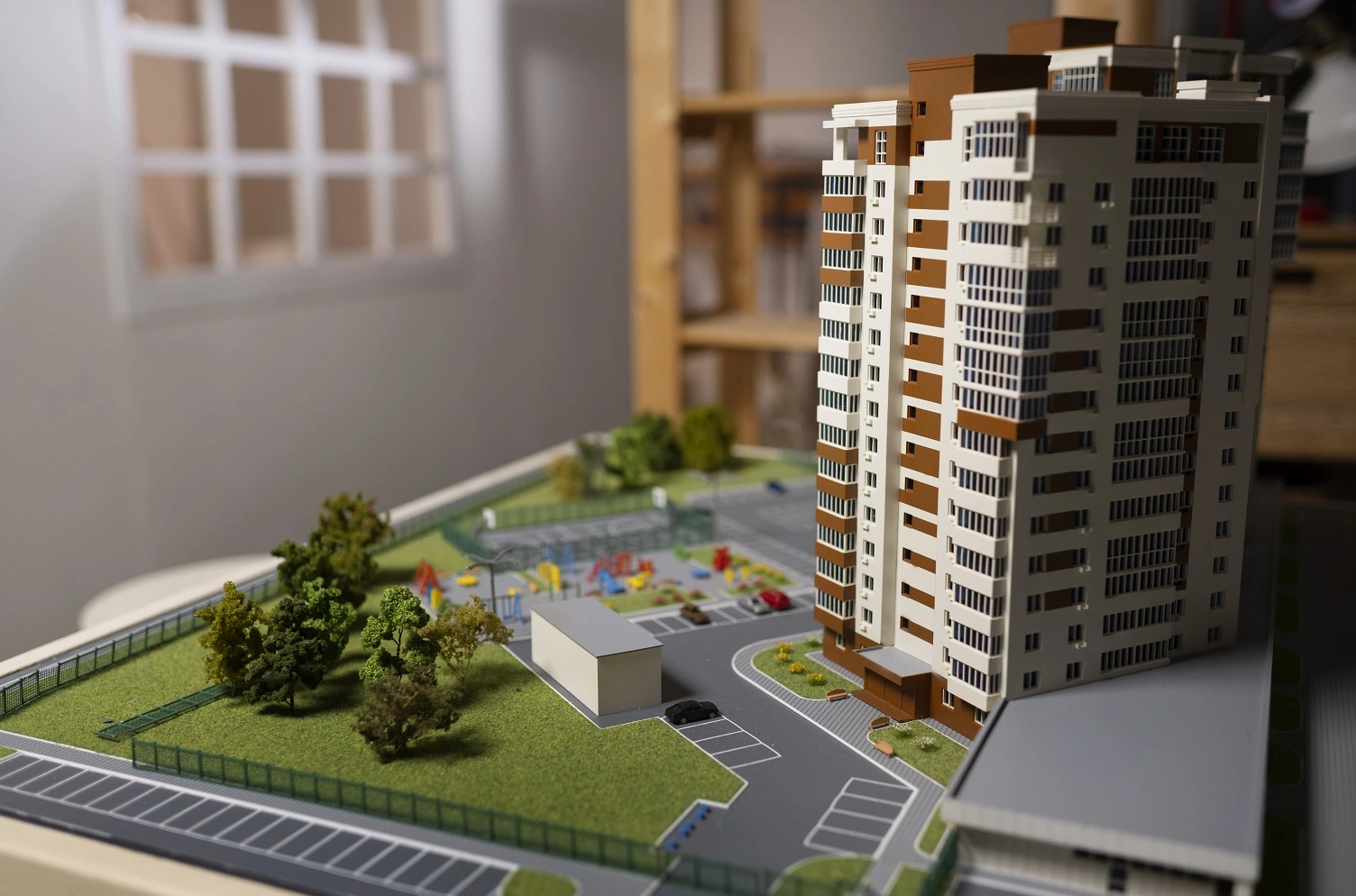The Rent Crisis: How External Variables Are Shaping Housing Costs Post-Brexit

Housing costs in the UK have been on a rollercoaster ride since Brexit. This blog will break down why your rent is climbing and what you can expect in the future.
How Does The Housing Market Look Like Post-Brexit
House prices in the UK have significantly changed since Brexit. Rent costs are also shifting, influencing many households and tenants.
Current trends in UK house prices and rent
The housing market has seen notable shifts since Brexit. Below is a summary of current trends in house prices and rents.
House prices have risen by 5% since Brexit. This trend is driven by demand outweighing supply. Rents have increased by 2% in 2023. This rise is due to fewer houses available for rent. More people are moving from cities to the countryside, causing a spike in rural house prices. Universal Credit now covers private rents and service charges. This has eased some rental market pressures.
Will House Prices and Rents Continue To Rise in 2024?
House prices and rents in the UK may rise further in 2024. The economic impact of Brexit continues to impact the market. Low housing supply also pressures costs upwards.
Government policies will shape rent and house prices. Increased funding, like Scotland's £83.7 million for Discretionary Housing Payments, helps some tenants but might not curb overall price hikes. New construction projects could help if they keep pace with demand.
Interest rates may affect mortgage costs too. Higher rates mean pricier loans for buyers, putting more strain on affordability. Renters might face steeper costs as landlords pass expenses down to tenants.
External Factors Influencing Housing Costs
Economic shifts since Brexit have stirred the housing market. Policy changes and demographic movements also play key roles in housing costs.
The Economic impact of Brexit on the housing market
Brexit has shaken the UK housing market. House prices have become more unpredictable, with many areas seeing slow growth. For example, London experienced a 4% drop in house values since Brexit occurred.
In addition, the benefit cap limits the total benefits for some individuals. As income surpasses this cap, Housing Benefit faces cuts and contributes to rising living costs amidst economic uncertainty.
Government policy changes and their effects
The UK Government reinstated housing cost support for 18 to 21-year-olds in March 2018. This change provides financial relief to young adults struggling with rent income after Brexit.
It helps them gain stability and reduces homelessness rates.
Shifts in demographic trends and their implications
More people are moving to cities, making housing demand spike. This increase causes the actual rent prices to rise. Younger people, especially those in their 20s and 30s, often feel this impact more.
They struggle with high rents and find it hard to save for a house deposit.
Older residents now choose to stay in their homes longer due to the ageing population trend. These trends put pressure on the housing market post-Brexit. The Bedroom Tax also plays a role by reducing Housing Benefit for larger properties that go under-occupied.
This tax has been effective since April 2013 and affects many tenants, forcing them into smaller but still costly rentals.
Challenges in the Housing Market
Housing supply remains a major challenge in the market. Many people struggle to afford even basic housing due to high prices and rents.
Housing supply constraints
Housing supply constraints make it harder for people to find affordable homes. Many regions in the UK face a shortage of new housing developments. This problem worsened due to Brexit and reduced government funding.
The reduction in Housing Benefits for spare bedrooms also plays a role. Households with one extra bedroom see their benefits cut by 14%. With two or more extra rooms, the cut increases to 25%.
These policies limit available space, squeezing an already tight market.
Construction industry slowdowns
The construction industry faces slowdowns due to post-Brexit challenges. Builders struggle with shortages of skilled labor and materials. These issues lead to delays in housing projects, pushing up costs.
The economic impact of Brexit has worsened the situation. Many companies halted their projects because of uncertainty about rules and supplies. This slowdown affects the housing supply, making rent pricier for tenants already burdened by high living costs.
Government policies also play a role. Post-Brexit regulations make it harder to import building materials. Higher tariffs increase expenses, which developers pass on to consumers. Reduced housing stock means fewer options for renters, driving prices higher still.
Affordability concerns for buyers and renters
Affordability issues plague both buyers and renters in the UK. House prices continue to rise, making it harder for first-time buyers to enter the market. Many struggle with saving enough for a deposit due to soaring rents and high living costs.
The Department for Work and Pensions offers support, like Discretionary Housing Payment, but it's often not enough.
Renters face similar challenges with temporary housing costs after Brexit. Higher demand has driven up rental prices across major cities. Universal Credit payment recipients may find their housing payments do not fully cover rent costs.
In these cases, they can apply for additional funds through Discretionary Housing Payments or other means-tested benefits to help ease the burden. Interest rates also impact affordability for homebuyers. Rising rates increase mortgage repayments, putting pressure on household budgets already stretched thin by inflation and economic uncertainty post-Brexit.
Support for Mortgage Interest exists as a repayable loan since April 2018 but must be carefully weighed against long-term financial plans.
The Role of External Economic Factors
The Role of External Economic Factors: Interest rates make mortgages more expensive, while inflation lowers housing affordability. Read on to learn how these factors affect the UK market!
Interest rates and their influence on mortgage costs
Interest rates have a big impact on mortgage costs. Higher interest rates mean higher monthly payments for homeowners. If the Bank of England raises rates, borrowing becomes more expensive.
This might make people think twice about buying homes. Lower interest rates can help reduce monthly payments and attract new buyers.
Mortgage lenders decide loan terms based on these rates. Homeowners with fixed-rate mortgages won't see changes in their payments when interest rates rise. But those with variable-rate mortgages will pay more each month if the rate increases.
Many UK homeowners need to watch how these changes affect their budgets.
Does Inflation Impact Housing Affordability?
Inflation pushes up the cost of living. Renters and buyers find it harder to afford homes. As prices rise, wages often do not keep pace. This gap makes housing less affordable for many people.
Higher inflation increases mortgage rates as well. Higher interest rates mean costlier home loans. First-time buyers and those with lower incomes feel the pinch more acutely.
Government benefits may decrease if income exceeds the benefit cap. For low-income households, this can create additional financial strain. The impact on those relying on benefits can be severe, worsening their housing situation further.
International economic policies affecting the UK market
International economic policies can impact the UK market in various ways. Trade deals with Europe and other countries affect import and export costs. For instance, after Brexit, new trade agreements changed tariffs on goods coming into the UK.
Foreign investment plays a key role too. Changes in international tax laws can make the UK more or less attractive to investors. This could either drive up property prices or cause them to fall, depending on where foreign money flows next.
Further impacts come from global interest rates set by entities like the US Federal Reserve. If these rise, it might push mortgage rates higher in Britain as well, making homes less affordable for many buyers and renters across income brackets.
Policy Responses and Solutions
The UK government is working to boost the housing supply. Financial assistance programs aim to help homebuyers and renters manage costs better.
Government initiatives to boost housing supply
Government initiatives aim to increase housing supply. Various programmes target different aspects of the housing market.
- Affordable Housing Programme: This initiative provides funding for affordable homes. It supports shared ownership and social rent schemes.
- Help to Buy: Government loans up to 20% of the property's value help buyers purchase new-build homes. Buyers need only a 5% deposit.
- First Homes Scheme: Discounts of at least 30% on new homes for first-time buyers. Local councils ensure these homes remain affordable in perpetuity.
- Build to Rent Fund: Financial support for developers building rental properties. Encourages private investment in the rental sector.
- Community Housing Fund: Grants for community-led housing projects, helping local groups build lower-cost homes meeting their needs.
- Planning Reforms: Simplified planning processes aim to speed up construction approvals. Focuses on transforming unused commercial properties into residential spaces.
The government constantly evaluates these initiatives' effectiveness and looks for ways to improve them.
Financial assistance programs for homebuyers and renters
Transitioning from government efforts to increase housing supply, we now explore financial aid for homebuyers and renters. These programmes help many people in the UK afford homes.
- Universal Credit: This scheme offers extra funds for housing costs to those who qualify. Homeowners can also get service charges covered.
- Help to Buy: The Help to Buy scheme includes equity loans and ISAs (Individual Savings Accounts). It aims to make buying a first home easier.
- Shared Ownership: This programme allows buyers to purchase a share of a property and pay rent on the rest. It makes homebuying more affordable.
- Right to Buy: Tenants in council housing can buy their homes at a discount through this scheme. It helps them transition from renting to owning.
- Rent-to-Own: Renters can save part of their monthly payments to buy the property they live in. This aids long-term planning for ownership.
- Local Housing Allowance (LHA): Private renters on low income receive support under LHA, which is based on local rental costs.
- First Homes Scheme: New homes are sold at a 30% discount on market prices for first-time buyers, mainly for key workers like nurses and teachers.
- Financial Support Programs by Charities: Various charitable trusts like Shelter provide emergency grants or loans for those struggling with rent payments.
These programs aim to reduce poverty rates and income inequality linked with high housing costs in the UK. They offer diverse solutions adapted to different needs, making housing more accessible across varying income levels.
Will The Housing Market Witness Changes in 2025?
The housing market in 2025 might face various changes. Experts share mixed views on long-term trends.
House prices might increase due to a limited supply of homes. The demand for housing remains high, especially in cities like London and Manchester. Economic uncertainty post-Brexit could lead to higher rent costs as fewer people buy homes.
Government policies could play a vital role. Initiatives to boost the housing supply may stabilise prices. Financial assistance programs could help first-time buyers enter the market more easily.
International economic policies will also impact these trends significantly.
Conclusion
The rent crisis after Brexit has many causes. Economic shifts and new policies play big roles. Demographic changes add more pressure to the housing market. Understanding these factors helps us find solutions for a stable future.
Whether you are an owner-occupier or renter, being aware is key.
FAQs
1. How has Brexit impacted housing costs in the UK?
Brexit has introduced economic uncertainties, affecting income distribution and increasing housing costs across the UK.
2. Will housing costs rise post-Brexit?
Yes, experts predict that house prices will continue to rise due to changes in economic activity and public spending.
3. How does relative poverty influence the rent crisis?
Relative poverty affects those with low incomes and increases deprivation among the poorest, exacerbating the rent crisis.
Related Posts
Ask the Expert
Mortgage Brokers




